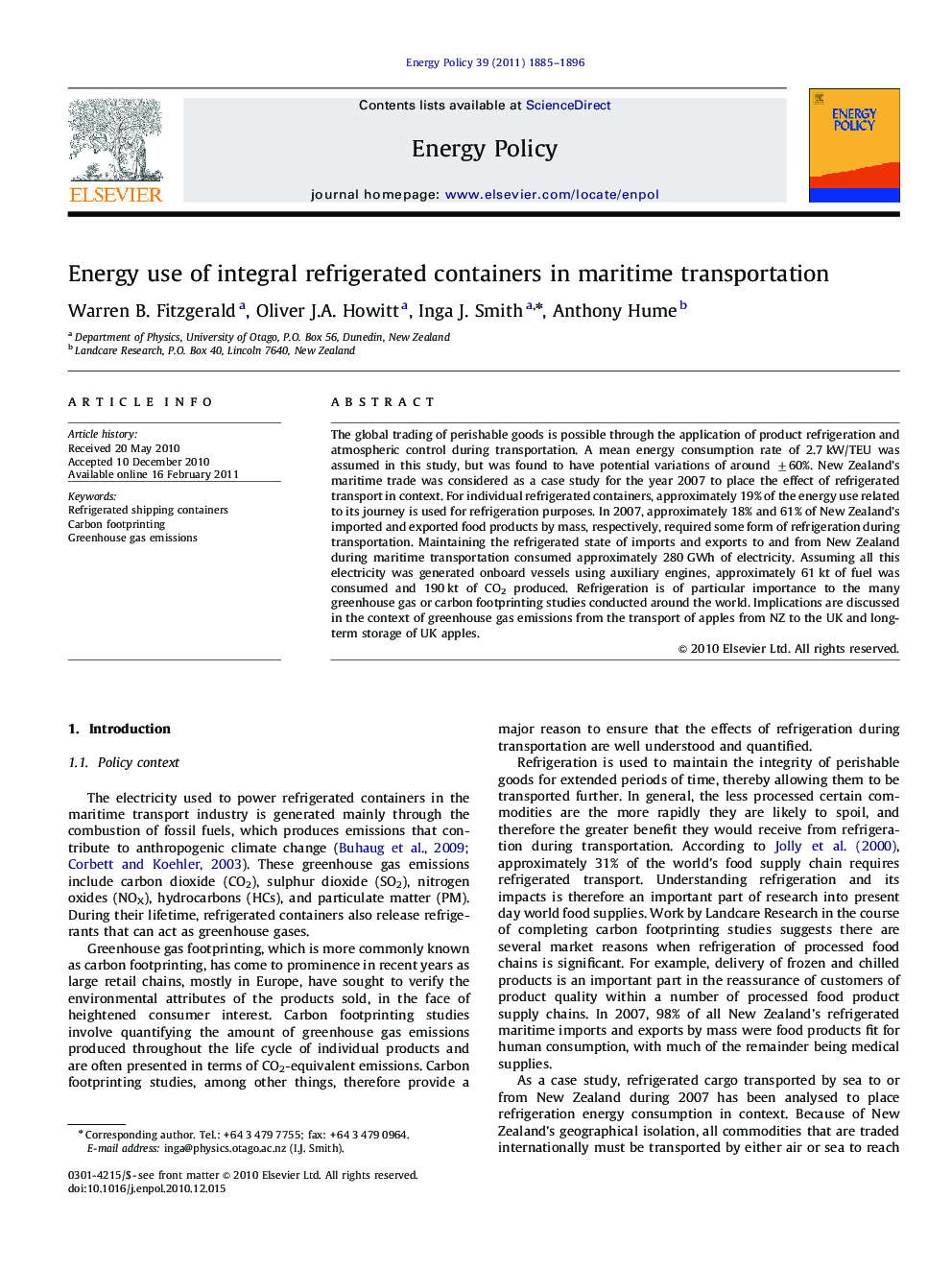| کد مقاله | کد نشریه | سال انتشار | مقاله انگلیسی | نسخه تمام متن |
|---|---|---|---|---|
| 993110 | 936022 | 2011 | 12 صفحه PDF | دانلود رایگان |

The global trading of perishable goods is possible through the application of product refrigeration and atmospheric control during transportation. A mean energy consumption rate of 2.7 kW/TEU was assumed in this study, but was found to have potential variations of around ±60%. New Zealand’s maritime trade was considered as a case study for the year 2007 to place the effect of refrigerated transport in context. For individual refrigerated containers, approximately 19% of the energy use related to its journey is used for refrigeration purposes. In 2007, approximately 18% and 61% of New Zealand’s imported and exported food products by mass, respectively, required some form of refrigeration during transportation. Maintaining the refrigerated state of imports and exports to and from New Zealand during maritime transportation consumed approximately 280 GWh of electricity. Assuming all this electricity was generated onboard vessels using auxiliary engines, approximately 61 kt of fuel was consumed and 190 kt of CO2 produced. Refrigeration is of particular importance to the many greenhouse gas or carbon footprinting studies conducted around the world. Implications are discussed in the context of greenhouse gas emissions from the transport of apples from NZ to the UK and long-term storage of UK apples.
Research highlights
► Energy use was assessed for New Zealand’s international maritime transport of refrigerated goods.
► Cargo-based analysis was used to obtain energy use and GHG emissions.
► 2.7 kW/TEU mean energy consumption rate was assumed, but data indicated potential variations of around ±60%.
► Refrigeration accounts for approximately 19% of a refrigerated container’s energy use on a journey.
► Approximately 280 GWh of electricity is used (190 kt of CO2) for refrigeration of NZ’s 2007 imports and exports.
Journal: Energy Policy - Volume 39, Issue 4, April 2011, Pages 1885–1896